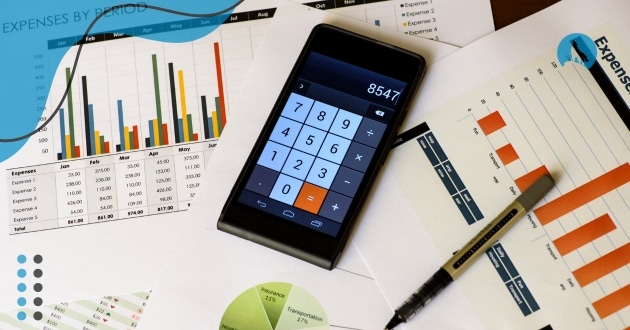Best personal finance tips are essential for anyone looking to achieve financial stability and success. Whether you’re just starting out on your financial journey or you’re looking to refine your strategies, understanding the fundamentals can make all the difference. Personal finance isn’t just about saving money; it’s about making informed decisions that will benefit you in the long run. By focusing on the best practices, you can create a solid foundation for your financial future.
Moreover, best personal finance tips can guide you in managing your money more effectively. From budgeting to investing, these tips are designed to help you maximize your financial potential. In today’s fast-paced world, having a clear financial plan is more important than ever. By integrating these strategies into your daily life, you can avoid common pitfalls and build wealth over time.
In addition, best personal finance tips can help you navigate unexpected financial challenges. Life is unpredictable, and having a solid financial plan in place can provide a safety net when things don’t go as planned. Whether you’re dealing with an unexpected expense or planning for a major life event, these tips will help you stay on track and achieve your financial goals.
Building a Strong Financial Foundation

Creating a strong financial foundation is the first step toward long-term financial health. This involves understanding your income, expenses, and financial goals, and then creating a budget that aligns with your priorities.
1. Setting Financial Goals
Setting clear and achievable financial goals is crucial. Whether it’s saving for a down payment on a house, building an emergency fund, or planning for retirement, having specific goals helps you stay focused and motivated. Start by identifying your short-term and long-term goals, and then create a plan to achieve them.
2. Creating a Budget (Best personal finance tips)
A budget is a powerful tool that allows you to control your spending, save more, and avoid debt. By tracking your income and expenses, you can identify areas where you can cut back and allocate more money toward your financial goals. There are various budgeting methods to choose from, such as the 50/30/20 rule, which allocates 50% of your income to needs, 30% to wants, and 20% to savings and debt repayment.
Integrating Tax Planning into Your Personal Finance Strategy (Best personal finance tips)
When managing your personal finances, it’s important not only to focus on budgeting and saving but also to consider tax planning as a key component of your overall strategy. By incorporating effective tax saving strategies into your financial plan, you can minimize your tax liability and keep more of your money working for you. Understanding how different investments, retirement accounts, and deductions impact your taxes can lead to significant savings over time, allowing you to achieve your financial goals more efficiently.
Using Financial Tools to Track Your Progress
To effectively manage your personal finances, it’s helpful to use tools that can track your spending, budget, and overall financial health. Platforms like Mint provide an easy way to monitor your finances in one place, helping you stay on top of your budget, set financial goals, and even find opportunities to save more money.
FAQ on Best Personal Finance Tips
1. What are the best personal finance tips for beginners?
For beginners, the best personal finance tips include creating a budget, setting financial goals, saving regularly, and avoiding unnecessary debt. Start by tracking your income and expenses to understand where your money goes, and then build a budget that helps you allocate funds towards your financial goals.
2. How can I effectively manage my debt? (Best personal finance tips)
To manage debt effectively, prioritize paying off high-interest debts first, like credit cards, while making minimum payments on other debts. Consider using the avalanche method for faster debt repayment and avoid accumulating new debt by sticking to your budget and spending only on essentials.
3. What is the importance of an emergency fund?
An emergency fund is crucial because it provides a financial safety net for unexpected expenses, such as medical bills or car repairs. Aim to save three to six months’ worth of living expenses in a high-yield savings account to ensure you’re prepared for emergencies.
4. How much should I save for retirement?
The amount you should save for retirement depends on your lifestyle goals and retirement age. A common guideline is to save 15% of your income annually. Maximize contributions to retirement accounts like 401(k)s and IRAs, and take advantage of employer matching programs if available.
5. What are the best ways to invest for long-term growth? (Best personal finance tips)
For long-term growth, diversify your investments across various asset classes like stocks, bonds, and real estate. Start investing early to benefit from compound interest, and consider low-cost index funds or ETFs for broad market exposure and reduced risk.
6. How can I improve my credit score?
Improve your credit score by paying bills on time, reducing credit card balances, avoiding new credit inquiries, and maintaining a mix of credit types. Regularly check your credit report for errors and correct them promptly to ensure your score accurately reflects your financial behavior.
7. Why is budgeting important in personal finance?
Budgeting is important because it helps you manage your money, control spending, and allocate funds toward your financial goals. A budget ensures that you live within your means, avoid debt, and make informed financial decisions that align with your priorities.
8. How do I set realistic financial goals? (Best personal finance tips)
Set realistic financial goals by being specific, measurable, achievable, relevant, and time-bound (SMART). Break larger goals into smaller, manageable steps, and regularly review your progress to stay on track and adjust your plan as needed.
9. What types of insurance should I consider?
Consider essential types of insurance, such as health, auto, home, and life insurance, to protect yourself and your family. Depending on your circumstances, you might also consider disability insurance, long-term care insurance, and umbrella insurance for additional coverage.
10. How can I start saving for a child’s education?
Start saving for a child’s education by opening a 529 savings plan or a custodial account, which offer tax advantages and flexibility. Regularly contribute to the account and explore additional savings strategies to ensure you’re prepared for future education expenses.
Conclusion (Best personal finance tips)
Implementing the best personal finance tips can significantly improve your financial health and help you achieve your goals. By setting clear objectives, managing your debt, saving and investing wisely, planning for retirement, and protecting your assets, you can create a strong financial foundation that will serve you well throughout your life. Start today by taking small steps toward better financial management, and over time, you’ll see the positive impact on your overall financial well-being.



